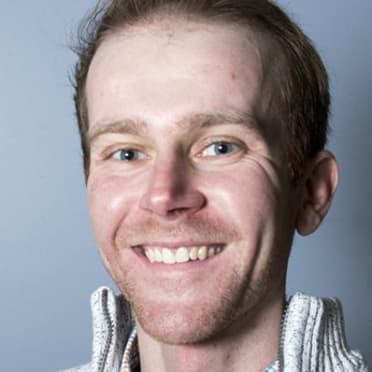SEATTLE -- ‘Tis the season when it’s Jerry Dipoto’s time to shine.
The Mariners’ president of baseball operations formally embarked on his offseason Tuesday when gathering at the General Managers Meetings in Las Vegas. Free agency doesn’t begin until Thursday at 2 p.m. PT, but other transactions are fair game.
Dipoto already revealed that Seattle won’t bring back Mitch Haniger via the $19.25 million qualifying offer, but he added that the club is exploring other avenues for a reunion.
Here are other takeaways from his media session:
Scouring the middle-infield market
With Adam Frazier a free agent, the Mariners have a void at second base, where J.P. Crawford could take over if Seattle lands one of the market’s premier shortstops -- but Dipoto reiterated that such a transition is not the preference.
“Part of what has aided the evolution of our club is the static nature of the roster,” Dipoto told reporters. “There are a lot of guys that have played together, and that means when you're trying to build a lasting, cohesive, forward-moving sustainable team. So, J.P. is our shortstop.”
It’s probably getting too far ahead of things to consider that Seattle would extend a contract offer approaching $200 million (or more) for a single player, which is what Carlos Correa, Trea Turner and others will likely net.
“We're not going to sign all of them, that’s just not how we operate,” Dipoto said. “We will wind up doing some type of trade, and it'll be a combination of trade and free agency -- and we've already started to initiate the discussions with teams. My sense is that the middle-infield free-agency market is unlikely to move quickly. But there are a number of players in the corner outfield who fit as well. And there are also a number of guys that might be available in trade that we're interested in. So, we're not in a terrible rush.”
If the Mariners are unable to re-sign Haniger, their priorities will shift to adding potentially two corner outfielders and a middle infielder.
Sans Haniger, outfield in flux
Beyond Julio Rodríguez in center field, the Mariners intend to enter 2023 allocating their outfield playing time in a rotation, much like they did to begin ‘22. Jesse Winker is expected to recover from left knee and neck surgeries by Spring Training, and Jarred Kelenic will enter camp vying for a role. Dipoto downplayed the notion that the Mariners need to add two corner players.
“We kind of view the outfield as four outfielders,” Dipoto said, “understanding that those four outfielders are in some way going to fill the three outfield spots and then rotate through designated hitter, and then somebody will get an occasional off-day.
“That's the way we viewed it going into last year, when we had Mitch, we had Julio, we had J.K. We'll view it in that same way and not really pin it to: we have an everyday right fielder, an everyday center fielder. It's more that we have these four outfielders and we're going to manage their playing time and make sure that we keep them all healthy.”
Interest in international free agent Senga
The Mariners have been as active as any team in pursuing high-profile Japanese free agents, and starting pitcher Kodai Senga will be the latest they’ll court. Senga, 29, has grown into one of the top pitchers in Nippon Professional Baseball, with a fastball that reached 101.9 mph and a splitter/forkball that has baffled opposing hitters.
“His split by itself on a grading scale, it’s an 80,” Dipoto said. “He has a dominant pitch. I know he's done some starting, done some relieving in both roles, whether he's stretched out or short enough. He has the prerequisite out that the good ones have, and his is exceptional. ... We've done our due diligence, we are aware of his body of work.”
Farm system growing again
The Mariners’ farm system tumbled from No. 2 in MLB Pipeline’s preseason rankings to No. 24 in the midseason re-ranks, partly an expected drop after the graduations -- and MLB impacts -- from Rodríguez, Cal Raleigh and George Kirby, and the prospect-laden trades that landed Winker, Eugenio Suárez and Luis Castillo.
“We think our farm system is good as it was before, it's just located in a different place,” Dipoto said. “We have a lot of good young players at the short seasons and the low levels, the Complex and [Single-A] levels, that haven't yet had enough track record to develop the credibility to rise in third-party industry rankings. ... We don’t feel like we emptied the farm. I don’t want to say we’re in a much better place than we were three years ago, but we are well ahead of where we were when we were in need of restocking our farm system five years ago.”


